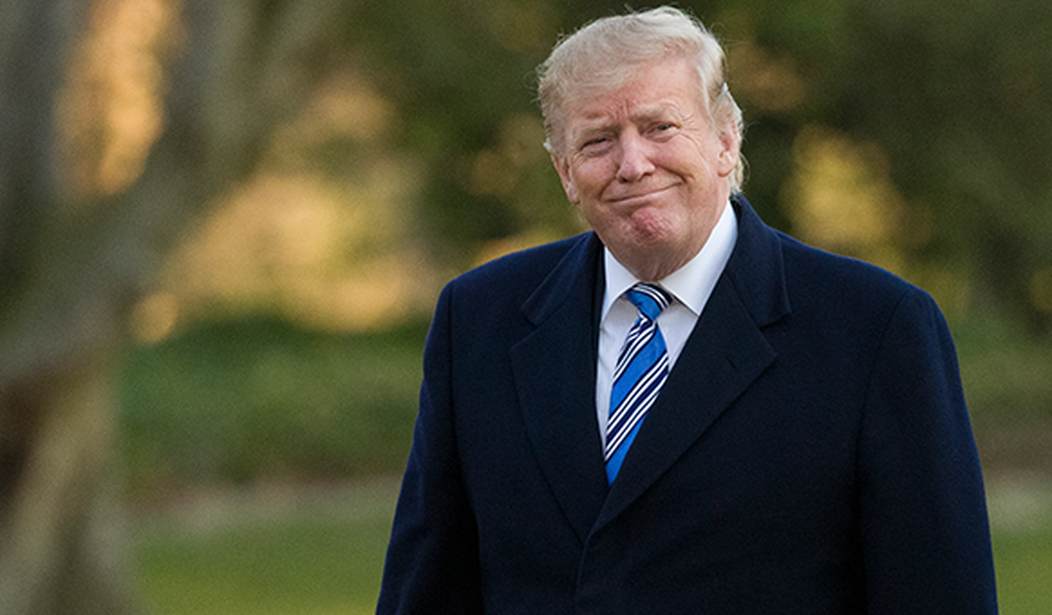Has there ever been an election year quite like 2020? Intense polarization divides Americans from coast to coast with regard to furiously defended philosophical, moral, religious, and political convictions. Much attention has been focused on President Donald Trump himself, while some of his most significant achievements have been overlooked.
Seemingly innumerable issues, disputes, and disagreements continue to come between friends, families, and foes alike. But far too little time seems to have been spent reflecting on something very positive, hopeful and indisputable: The Trump administration’s remarkable accomplishments regarding international religious freedom. International Religious Freedom Day on Oct. 27 is an ideal opportunity to applaud all he has done.
We can attest to another key fact: President Trump’s efforts have not been, as some claim, a cynical ploy to win the votes of Christian conservatives. In fact, the Trump administration has repeatedly defended millions of Uighur Muslims in Chinese prison camps, 700,000-plus Rohingya Muslims violently driven out of their homes in Burma, tortured Jehovah’s Witnesses in Russia, and countless other beleaguered minorities—including persecuted Christians.
On June 2, 2020 an unprecedented Executive Order was issued by the president of the United States, recognizing the promotion of international religious freedom as an imperative for the United States. It declared,
“Religious freedom, America’s first freedom, is a moral and national security imperative. Religious freedom for all people worldwide is a foreign policy priority of the United States, and the United States will respect and vigorously promote this freedom…[O]ur Founders understood religious freedom not as a creation of the state, but as a gift of God to every person and a right that is fundamental for the flourishing of our society….”
Recommended
However, that 2020 Executive Order was far from the first effort made by the Trump administration on behalf of religious freedom.
A significant step was taken in April 2018, when Mike Pompeo was confirmed as Secretary of State. President Trump intentionally chose a man who cares deeply about religious liberty and fully understands it global significance.
That same year, on April 30, during a press conference with Nigeria’s President Muhammadu Buhari, Trump raised the issue of the carnage of Christians taking place in that country—until then the bloodshed had largely been ignored by U.S. officials.
On July 24-26, 2018 the State Department hosted the first-ever Ministerial to Advance Religious Freedom. This brought hundreds of political, religious, and civil society leaders from around the globe to Washington, D.C., for a three-day summit promoting global religious liberty; a fund was also announced to aid international victims of religious abuse.
On August 1, the Trump administration sanctioned two Turkish officials over the detention of American pastor Andrew Brunson due to his Christian faith. This, along with persistent U.S. government efforts, ultimately resulted in Pastor Brunson’s release.
The administration’s religious freedom efforts increased in 2019.
In July, during the State Department’s second Ministerial, FCC Chairman Ajit Pai spoke powerfully about the illicit use of technology to track and control the lives of religious minorities. The United States was among 14 signatory countries on a statement of concern about technology and religious freedom.
During the Ministerial the U.S. joined 34 countries signing a statement of concern about counterterrorism being used as a pretext for the repression of religious freedom; it was as well one of 27 countries signing a statement condemning blasphemy, apostasy, or other laws restricting religious freedom. The U.S. was also one of 46 countries to sign a statement condemning attacks on places of worship and committing to help protect threatened religious communities.
On July 16, the State Department placed targeted sanctions on Burmese military officials for their human rights and religious freedom violations committed against the Rohingya Muslim population. In September, the State Department placed targeted sanctions on Russian officials for their religious freedom violations and torturing of Jehovah’s Witnesses.
On September 23—and for the first time any U.S. president had done so—President Trump hosted a meeting during the U.N. General Assembly and gave a speech solely focused on religious freedom. The next day, Trump addressed the necessity for protection of religious freedom during his U.N. General Assembly speech, affirming that China and Iran are two major violators of religious freedom.
On December 19, the Treasury Department sanctioned two Iranian judges responsible for human rights violations, one of whom had specifically violated the rights of Iran’s Christian and Baha’i religious minority communities.
On February 5, Secretary of State Mike Pompeo launched the International Religious Freedom Alliance. And on February 7, President Trump spotlighted Iran’s arrest of 21-year-old Christian convert Mary Mohammadi.
On April 2, U.S. Ambassador-at-Large Sam Brownback called upon China, North Korea, Iran, and Russia to release their prisoners of conscience in light of COVID-19. Many of these prisoners were incarcerated for their religious faith.
These actions and more preceded June 2, 2020, when President Trump signed the Executive Order on Advancing International Religious Freedom—a extraordinary achievement.
As the U.S. election approaches, those of us who work to extend religious freedom across the world are grateful for President Trump’s remarkable efforts. We hope to see his accomplishments remain securely in place. And we pray the U.S.A. will continue to stand in the gap between life and death, permitting millions of endangered people to choose life—for themselves and their children.
Lela Gilbert is Senior Fellow for International Religious Freedom at Family Research Council.

























Join the conversation as a VIP Member